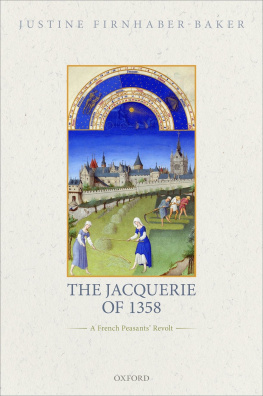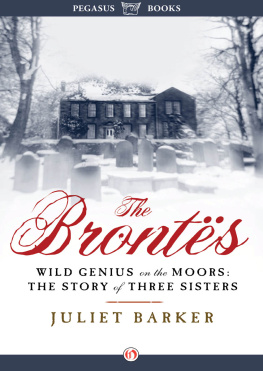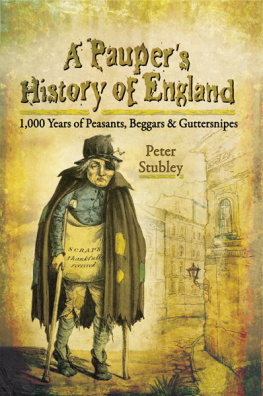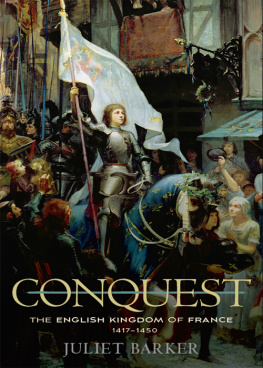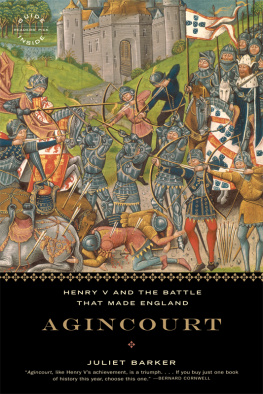Barker Juliet R. V. - 1381: The Year of the Peasants’ Revolt
Here you can read online Barker Juliet R. V. - 1381: The Year of the Peasants’ Revolt full text of the book (entire story) in english for free. Download pdf and epub, get meaning, cover and reviews about this ebook. year: 2014, publisher: Harvard University Press, genre: Politics. Description of the work, (preface) as well as reviews are available. Best literature library LitArk.com created for fans of good reading and offers a wide selection of genres:
Romance novel
Science fiction
Adventure
Detective
Science
History
Home and family
Prose
Art
Politics
Computer
Non-fiction
Religion
Business
Children
Humor
Choose a favorite category and find really read worthwhile books. Enjoy immersion in the world of imagination, feel the emotions of the characters or learn something new for yourself, make an fascinating discovery.

- Book:1381: The Year of the Peasants’ Revolt
- Author:
- Publisher:Harvard University Press
- Genre:
- Year:2014
- Rating:3 / 5
- Favourites:Add to favourites
- Your mark:
- 60
- 1
- 2
- 3
- 4
- 5
1381: The Year of the Peasants’ Revolt: summary, description and annotation
We offer to read an annotation, description, summary or preface (depends on what the author of the book "1381: The Year of the Peasants’ Revolt" wrote himself). If you haven't found the necessary information about the book — write in the comments, we will try to find it.
1381: The Year of the Peasants’ Revolt — read online for free the complete book (whole text) full work
Below is the text of the book, divided by pages. System saving the place of the last page read, allows you to conveniently read the book "1381: The Year of the Peasants’ Revolt" online for free, without having to search again every time where you left off. Put a bookmark, and you can go to the page where you finished reading at any time.
Font size:
Interval:
Bookmark:

1381
The Year of the Peasants Revolt
THE BELKNAP PRESS OF HARVARD UNIVERSITY PRESS
Cambridge, Massachusetts
2014
First published in the United Kingdom as England, Arise: The People, the King and the Great Revolt of 1381 in 2014 by Little, Brown Book Group
Jacket design: Photo division Getty Images
Jacket design: Annamarie McMahon Why
First Harvard University Press edition, 2014
The Library of Congress has catalogued the printed edition of this book as follows:
ISBN 978-0-674-74450-9 (EPUB)
Barker, Juliet R. V.
[England, arise]
1381 : the year of the Peasants Revolt / Juliet Barker. First Harvard University Press edition.
pages cm
Includes bibliographical references and index.
ISBN 978-0-674-36814-9 (cloth : alk. paper)
1. Tylers Insurrection, 1381. 2. Great BritainHistoryRichard II, 13771399. 3. Peasant uprisingsGreat BritainHistoryTo 1500. I. Title.
DA235.B37 2014
942.03'8dc23 2014025954
For James, Edward and Sophie
In the summer of 1381 England erupted in a violent popular uprising that was as unexpected as it was unprecedented. Previous rebellions had always been led by ambitious and discontented noblemen seeking to overthrow the government and seize power for themselves. The so-called Peasants Revolt was led by commonersmost famously Wat Tyler, Jack Straw and John Ballewhose origins were obscure and whose moment at the forefront of events was brief. Even more unusually, they did not seek personal advancement but a radical political agenda which, if it had been implemented, would fundamentally have transformed English society: the abolition of serfdom and the dues and services owed by tenants to their lord of the manor; freedom from tolls and customs on buying and selling goods throughout the country; the recognition of a mans right to work for whom he chose at the wages he chose; the states seizure of the Churchs wealth and property. Their demands anticipated the French Revolution by four hundred years.
The main events of the rebellion are well known. The people of Essex and Kent were the first to rise, marched to London to confront the fourteen-year-old Richard II, sacked royal palaces
By and large this was also the view of contemporary chroniclers, who were all clerics and nearly all monks. Almost to a man, therefore, they had neither sympathy nor genuine understanding of the rebels who had attacked their monastic houses and privileges and murdered their leaders. In their eyes rebellion was an unacceptable challenge to divinely appointed authority and the rebels were a bestial mob, ignorant, illiterate, barely capable of cogent languagethough that did not stop Thomas Walsingham, the most accomplished storyteller of them all, from putting eloquent, if entirely fictitious, speeches into the mouths of Balle and Straw when it suited him. These chroniclers did not see it as their task to look beyond what they thought were simply wanton and indiscriminate acts of violence to appreciate why people and property were being attacked on such a massive scale. The widespread burning of court rolls, charters and administrative and legal records seemed to them an attack by ignorance on the accumulated wisdom of the ages, symbolised most memorably in the example of Margery Starr, who danced round the bonfire of the university of Cambridges archives, throwing the ashes to the winds and crying, Away with the learning of clerks! Away with it!
To monks whose lives revolved around the scriptorium, books and chronicling deeds past and present for the education of future generations, such acts had to be portrayed as incomprehensible except, perhaps, as the result of envy, wickedness or the moral corruption imbibed from the preaching of excommunicate heretics and troublemakers like John Balle. The chroniclers accounts therefore have to be treated with caution because none of them wrote impartially and all of them had a didactic purpose in mind. It is true that many of them had access to important sources of information: Henry Knighton, an Augustinian canon at the abbey of St Mary Pratis, Leicester, and close to members of John of Gaunts household at Leicester, was able to quote the dukes officials and acquired five of John Balles letters, which he transcribed into his chronicle; as the official chronicler of his house, St Albans, Thomas Walsingham was able to make use of his abbeys extensive contacts, particularly with the court, was close to events in London and had a ringside seat for both the revolt in St Albans and the subsequent trials of rebels, including Balle, held there; Jean Froissart, the great chivalric historian, had spent seven years in the service of Edward IIIs wife, Queen Philippa, who was like him a Hainaulter by birth, and retained many contacts within the English court from whom he sought first-hand accounts of the great revolt. Nevertheless, even the best informed of these chroniclers, such as the author of the Anonimalle, which was written within a few years of the revolt, probably by a chancery clerk based in York, are riddled with factual errors, but when this is combined with a determination to create martyrs out of unlikely material and to demonise the rebels indiscriminately, the result can be toxic for historical accuracyparticularly when the author writes as persuasively and with as much colour as Walsingham or Froissart.
One might expect greater impartiality from the administrative and judicial records but these too present huge challenges Many of the incidents where force and arms were used may therefore have been as harmless as opening a closed gate or entering a property without the owners permission. This must be borne in mind when reading of houses and parks being broken into by force.
The maxim that one mans terrorist is another mans freedom fighter is demonstrated repeatedly in the indictments. Time and again we hear of extortions when money, property or bonds were handed over, allegedly as the result of threats to life and limb, or people being forcibly ejected from their tenements, which were then given to others. In many instances, however, these were not simple criminal acts of the moment, but had a history behind them which is often impossible to disentangle from the judicial charge; it might be an overdue debt, or a bond which had been fulfilled but was being unjustly retained instead of cancelled, or a disputed inheritance withheld or given to someone else by a corrupt escheator or manorial steward. The terminology of the indictment does not allow for the possibility that the accused might consider that their rebel actions were righting wrongs, not committing new ones.
Similarly, there are hundreds of examples in the judicial records of rebels ransacking properties, driving off livestock and taking everything from clothes to kitchen utensils. On the face
This brings us to the two main issues to emerge from this book. The first is the fact that this was not a peasants revolt at all. As with so many neat and enduring labels, including the Black Death, this was a name bestowed by nineteenth-century historians who equated the chroniclers description of the rebels as rustici, meaning rural or country people, with peasants and serfs in particular. The problem with this term is that it is no longer simply a description of agricultural labourers or subsistence farmers, but has acquired a politically charged meaning which elevates the universalities of dogma above the differences of the particular. Marxist historians like Rodney Hilton identified the medieval English peasantry as a monolithic social In other words, the Peasants Revolt was an unavoidable result of the age-old class struggle.
Font size:
Interval:
Bookmark:
Similar books «1381: The Year of the Peasants’ Revolt»
Look at similar books to 1381: The Year of the Peasants’ Revolt. We have selected literature similar in name and meaning in the hope of providing readers with more options to find new, interesting, not yet read works.
Discussion, reviews of the book 1381: The Year of the Peasants’ Revolt and just readers' own opinions. Leave your comments, write what you think about the work, its meaning or the main characters. Specify what exactly you liked and what you didn't like, and why you think so.

